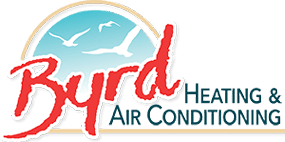If not controlled, summer heat gain in your home will leave you with air conditioning bills that are more uncomfortable than the heat itself. Taking measures to prevent your home from heating up reduces your reliance on the A/C, saving you money and keeping you more comfortable. Many weatherization methods also keep your home warmer in winter, so you’ll enjoy the benefits year-round.
Seal air leaks
The volume of air that the average home loses through leaks amounts to leaving a window open all day. These leaks occur around windows, doors, penetrations for utility lines, clothes dryer vents and electrical outlets. Sealing air leaks prevents hot, humid summer air from entering your home and keeps conditioned air inside.
Apply weatherstripping to moving parts, such as the inside of window tracks, the tops of window sashes and inside the jambs of exterior doors. Use caulk to seal non-moving parts, such as window and door frames. Many types of weatherstripping and caulk are available, so read the product’s instructions before you buy. To accurately identify all the air leaks in your home, contact an HVAC professional for a home energy audit.
Improve your insulation
Air sealing and optimizing your insulation could reduce your total heating and cooling costs by up to 20 percent, according to the U.S. Environmental Protection Agency. For the greatest impact, start with your attic. In the Savannah area, if your attic already has 3 or 4 inches of insulation, increase this to at least the R-25 level. Increasing your attic insulation from the R-19 to R-30 level can reduce attic heat gain by up to 30 percent. R-30 requires around 11 inches of fiberglass batt insulation.
Optimize your windows
Your windows are responsible for around 40 percent of your summer heat gain. Upgrading to Energy Star-qualified windows is one of the most effective ways to reduce this. If new windows aren’t in your budget, consider storm windows. Installed on single-pane windows, they reduce summer heat gain by 15 to 25 percent. Sun-control films, which can block up to 80 percent of sunlight, are another option, although they’ll also darken your rooms. For a simpler solution, hang light-colored blinds or curtains. These reflect sunlight away from the windows.
Minimize indoor heat production
When in use, your oven, dishwasher, washing machine and clothes dryer add heat to your home. Use these appliances only during cooler times of the day. Upgrading your light bulbs helps, too. Energy-efficient compact fluorescent lamps produce 90 percent less heat than traditional incandescent bulbs.
Shade your home
In addition to energy-efficient windows, awnings or exterior solar screens also help keep heat out of your home. Shading your home with greenery is another effective way to reduce your summer heat gain. It’s particularly important to shade concrete areas beside your home because concrete reflects and radiates heat. Don’t want to wait for trees to grow? Try a trellis with a fast-growing climbing vine.
Use your ceiling fans
Ceiling fans use only as much energy as a light bulb, but they make your air feel around 4 degrees cooler. That lets you turn down your air conditioning by the same amount. Every degree you lower your thermostat below 78 degrees could reduce your cooling bills by 1 percent.
Reflect the heat away
Around 30 percent of your summer heat gain comes through your roof, but you can reduce this by applying a reflective coating to your roof. White latex coating can be applied to metal and tar paper roofing, as well as asphalt and fiberglass shingles. Asphalt-based coating is another option that’s suitable for metal and asphalt roofs. Installing a radiant barrier on the underside of your roof also helps reflect heat away from your home. Light-colored exterior walls on the south, west and east sides help, too.
A professional home energy evaluation will give you a clearer understanding of how you can reduce the summer heat gain in your home. An HVAC professional can help you identify points of energy loss and advise you on upgrading and maintaining your air conditioning system for even greater savings.
For more pro tips on reducing summer heat gain and other HVAC topics, contact the pros at Byrd Heating and Air Conditioning. Since 1986, we’ve been providing affordable services of superior quality around the Savannah and Garden City areas.

